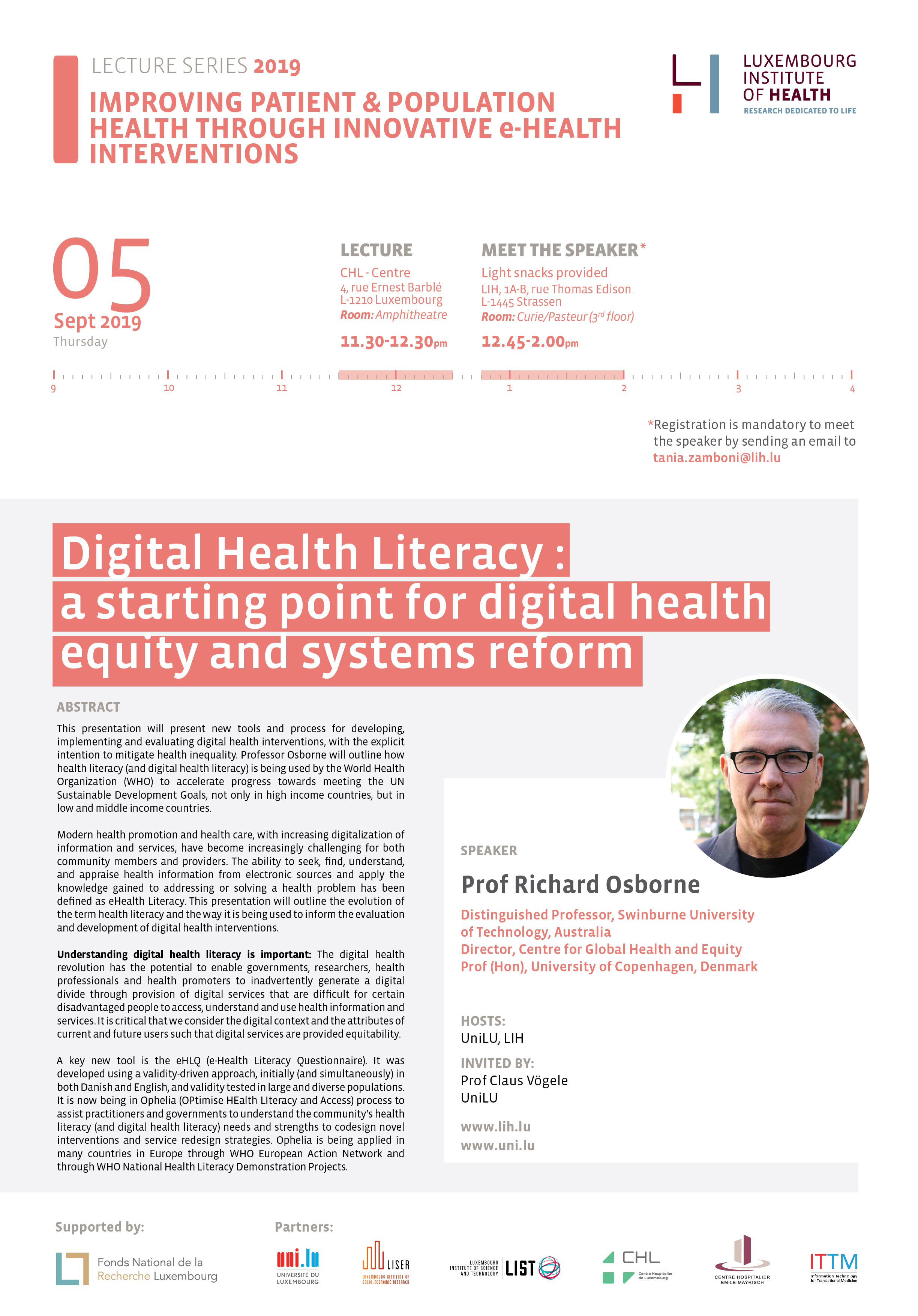Events
05 September 2019
Digital Health Literacy: a starting point for digital health equity and systems reform
Lecture series 2018/2019: improving patient & population health through innovative e-health interventions
SPEAKER
Prof Richard Osborne
Distinguished Professor, Swinburne University of Technology, Australia
Director, Centre for Global Health and Equity Prof (Hon), University of Copenhagen, Denmark
LECTURE
Thursday September 5th throm 11h30 to 12h30
CHL - Centre 4, rue Ernest Barblé L-1210 Luxembourg Room: Amphitheatre
MEET THE SPEAKER*
from 12h45 to 14h00
Light snacks provided LIH, 1A-B, rue Thomas Edison L-1445 Strassen Room: Curie/Pasteur (3rd floor)
*Registration is mandatory to meet the speaker by sending an email to tania.zamboni@lih.lu
Digital Health Literacy : a starting point for digital health equity and systems reform
ABSTRACT
This presentation will present new tools and process for developing, implementing and evaluating digital health interventions, with the explicit intention to mitigate health inequality. Professor Osborne will outline how health literacy (and digital health literacy) is being used by the World Health Organization (WHO) to accelerate progress towards meeting the UN Sustainable Development Goals, not only in high income countries, but in low and middle income countries.
Modern health promotion and health care, with increasing digitalization of information and services, have become increasingly challenging for both community members and providers. The ability to seek, ?nd, understand, and appraise health information from electronic sources and apply the knowledge gained to addressing or solving a health problem has been de?ned as eHealth Literacy. This presentation will outline the evolution of the term health literacy and the way it is being used to inform the evaluation and development of digital health interventions.
Understanding digital health literacy is important: The digital health revolution has the potential to enable governments, researchers, health professionals and health promoters to inadvertently generate a digital divide through provision of digital services that are dif?cult for certain disadvantaged people to access, understand and use health information and services. It is critical that we consider the digital context and the attributes of current and future users such that digital services are provided equitability.

A key new tool is the eHLQ (e-Health Literacy Questionnaire). It was developed using a validity-driven approach, initially (and simultaneously) in both Danish and English, and validity tested in large and diverse populations. It is now being in Ophelia (OPtimise HEalth LIteracy and Access) process to assist practitioners and governments to understand the community’s health literacy (and digital health literacy) needs and strengths to codesign novel interventions and service redesign strategies. Ophelia is being applied in many countries in Europe through WHO European Action Network and through WHO National Health Literacy Demonstration Project
LISER is a proud partner in the RESCOM grant awarded by the FNR for a Lecture Series on “Improving patient & population health through innovative e-health interventions” Other partners include the LIH (lead institution), the University of Luxembourg, LIST, CHL, Centre Hospitalier Emile Mayrisch, and ITTM.






